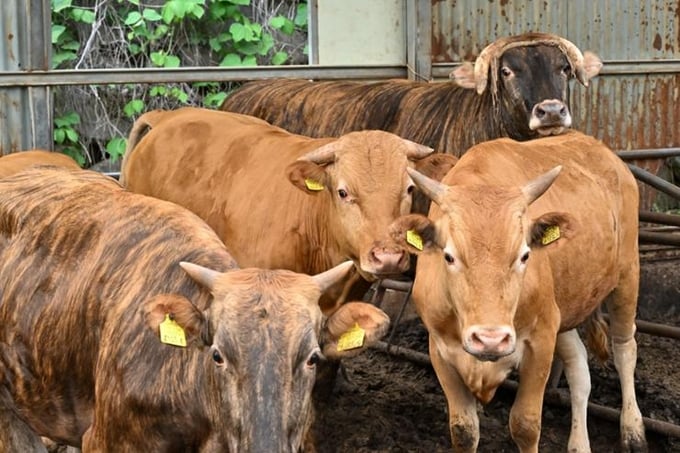November 27, 2025 | 09:17 GMT +7
November 27, 2025 | 09:17 GMT +7
Hotline: 0913.378.918
November 27, 2025 | 09:17 GMT +7
Hotline: 0913.378.918

Cattle are seen in a farm in Ulleungdo, June 7, 2023. Photo: Korea Times/Choi Joo-yeon.
Under the project, Korea Southern Power will build related facilities and generate power, daily using 4,000 tons of solid fuel made from the waste, the agricultural and environment ministries said in a joint statement.
The annual greenhouse gas reduction achieved by the project will be equivalent to emissions produced by 1.1 million automobiles, according to the ministries.
"Currently, cattle feces are mostly used to produce fertilizers. However, the process generates greenhouse gases and may cause algal blooms in nearby streams," their statement said.
"When we transform cattle feces into solid fuel, we can process the waste in a more environmentally friendly way."
(Yonhap)

(VAN) After the institutional merger, Da Nang possesses significant forest-carbon reserves and is proactively engaging in the carbon market, creating a new revenue stream.

(VAN) An Giang strengthens communication against IUU fishing, increases inspections and sanctions, and is determined to remove the EC’s “yellow card” while developing a sustainable fisheries sector.

(VAN) As green transition becomes a global trajectory, Viet Nam’s biggest challenge is not only technology and models, but how to ensure that capital flows reach the right beneficiaries.

(VAN) The Ministry of Agriculture and Environment must spearhead the construction of green governance, spanning decision-making processes and investment standards to policy evaluation mechanisms.

(VAN) The Agriculture and Environment sector of Khanh Hoa has achieved numerous milestones over the past 80 years, contributing significantly to the goal of establishing the province as a centrally governed city by 2030.

(VAN) Viet Nam is entering the pivotal period of 2025-2030, moving toward the formulation of the Remote Sensing Law, which will establish a legal foundation for the development of national digital data.

(VAN) The agricultural sector is finalizing the strategic framework for emission reduction, setting the goal of sharply cutting methane and 403.7 million tons of CO2 equivalent and moving toward Net Zero by 2050.